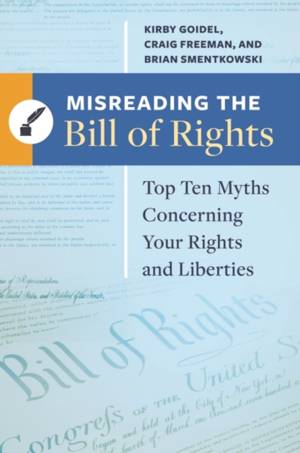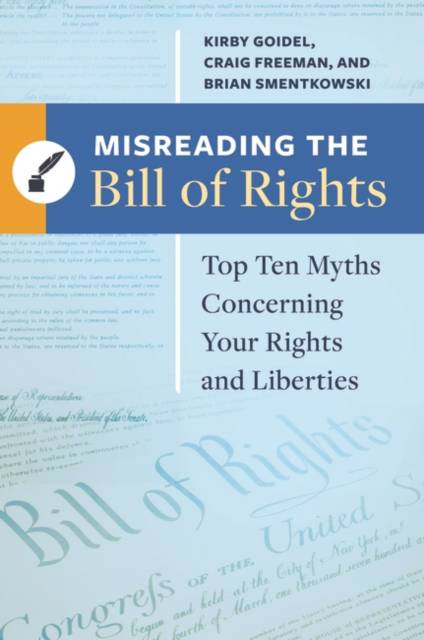
- Retrait gratuit dans votre magasin Club
- 7.000.000 titres dans notre catalogue
- Payer en toute sécurité
- Toujours un magasin près de chez vous
- Retrait gratuit dans votre magasin Club
- 7.000.000 titres dans notre catalogue
- Payer en toute sécurité
- Toujours un magasin près de chez vous
Misreading the Bill of Rights
Top Ten Myths Concerning Your Rights and Liberties
Kirby Goidel, Craig Freeman, Brian Smentkowski
Livre relié | Anglais
110,45 €
+ 220 points
Description
The Bill of Rights--the first 10 amendments to the U.S. Constitution--are widely misunderstood by many Americans. This book explores the widely held myths about the Bill of Rights, how these myths originated, why they have persisted, and the implications for contemporary politics and policy.
Interestingly, most Americans today--even professional political commentators--misinterpret or misunderstand what the Bill of Rights' intended meaning and purposes were. Culturally ingrained myths about the Bill of Rights have helped to define what it means to be an "American" but also limited the range of political debate and justified unfair and unequal treatment of minorities. This book addresses the top ten myths regarding the Bill of Rights from the standpoint of public understanding (and misunderstanding) from a non-partisan, objective point of view, provoking independent thought and enabling readers to reach their own educated conclusions and opinions. Written by two experts in the fields of political science, public policy, media law, and civil liberties, the work explores the key role of modern news and entertainment media in contributing to public misunderstanding of individual rights and liberties. The authors also apply and interpret data from public opinion surveys to further examine public beliefs about the Bill of Rights and closely connect the analysis of misperceptions to existing political beliefs.Spécifications
Parties prenantes
- Auteur(s) :
- Editeur:
Contenu
- Nombre de pages :
- 272
- Langue:
- Anglais
Caractéristiques
- EAN:
- 9781440832338
- Date de parution :
- 30-03-15
- Format:
- Livre relié
- Format numérique:
- Genaaid
- Dimensions :
- 163 mm x 236 mm
- Poids :
- 635 g







